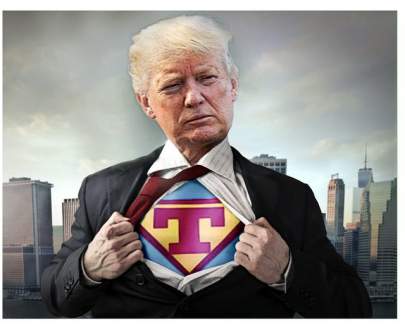Tariffs Are Taxes
Monday, January 27, 2025
Written by Laurence F Sanford, Senior Analyst ASCF
Categories: ASCF Articles

Tariffs are taxes. A tariff is a tax placed by a government on goods that cross national borders. Countries do not pay tariffs; the importing purchaser pays tariff taxes to the government or the collecting government agencies.
If a Chinese company sells a widget for $100 without tariffs, the importing purchaser pays $100. If the US Government imposes a 50% tariff on the widget, the importing purchaser then pays $150. China receives $100, and the US government receives $50.
Tariff taxes distort market efficiencies by causing the price of a product to be higher than it otherwise would be in a free market. However, there is no free market pricing with international trade. The price is determined by many factors, including the amount of government subsidies, restrictions, regulations, and political agenda.
Tariffs can cause inflation since prices usually rise, but not always. President Reagan negotiated import quotas (a tariff) on Japanese cars, forcing Japanese companies to invest billions of dollars in the non-union US South to build cars. A few years later, the quotas were lifted, and prices returned to normal.
Tariffs protect domestic industries from foreign competition that may have open or hidden government aid. China’s state-owned enterprises (SOE) receive government financing and other favorable treatment that US companies do not receive. SOEs are frequently used to implement the Chinese Communist Party’s (CCP) centralized control policy of socioeconomic stability (police state), the building of infrastructure, and world economic and military domination.
President Trump campaigned to impose blanket tariffs of 10% to 20% on all imports, with additional tariffs of 60% to 100% on goods from China. The US trade deficit in 2023 totaled $773 billion and was led by:
China $279 billion
Mexico $152 billion
Vietnam $105 billion
Trump also threatened additional tariffs on Mexico and Canada if they did not tighten border control to prevent illegal immigration and drug flow into the US. Imposing a 10% blanket tariff would raise $2 trillion in revenue for the US government from 2025 to 2034. Tariff payments are now collected by the U.S. Customs and Border Protection (CBP).
Often not mentioned is the benefit to society of tariffs on domestic manufacturing that has a value far beyond what market prices reflect. Yes, moving a factory to China or Mexico can lower the price of a widget, but it raises the price to society. The cost to society includes:
Societal depression from unemployment of workers.
Lower living standards
Drug and alcohol abuse
Decline in real estate and home values
Decrease in tax revenues
For purposes of national security, manufacturing does matter. A clear example is China’s ability to build ships. China’s shipbuilding capacity is 232 times greater than the United States. Chinese shipyards can build 23 million tons of vessels versus the US’s capacity of 100,000 tons. The Chinese Navy is already larger than the US Navy and is growing exponentially faster. The Chinese merchant and fishing fleets are vastly larger. Control of the seas matters both militarily and economically.
Manufacturing matters in a country’s growth and innovation. Ancillary businesses form and provide jobs. Research and engineering know-how follow manufacturing. Silicon Valley high-tech companies grow and feed off each other. California does not allow non-compete agreements. Employees are free to move from one company to another - analogous to bees fertilizing flowers by moving from one to another.
Tariff protectionism, which insulates companies from competition, can lead to stagnation. But it can also lead to economic development. In the late 1800s and early 20th century, the United States had some of the world’s highest tariffs as it developed its industrial base to become the world’s economic power.
After World War II, European and Asian countries developed their economies using tariffs and economic policies. The US saw its economic base collapse when it left its domestic manufacturing unprotected with low tariffs, participated in the 1994 North American Free Trade Agreement (NAFTA), and promoted China’s entry into the World Trade Organization. China stole billions of dollars of American intellectual property, manipulated its currency, and erected trade barriers to prevent American companies from selling in China.
Summary
In 1925, President Calvin Coolidge said, “The chief business of the American people is business. They are profoundly concerned with producing, buying, selling, investing and prospering in the world.” In 2025, the American people are still profoundly concerned with the same issues.
Tariffs are taxes and can be constructive or destructive depending upon their purpose and implementation. American self-interest and reciprocity should be the basis of US foreign policy.
Action
Reciprocity - If a nation has high tariffs and regulatory restrictions against American companies, the US should reciprocate.
Unrestricted warfare - Recognize China is waging unrestricted warfare against the US and reciprocate. All organs of Chinese society are united toward the CCP’s goal of world domination.
Cyber warfare and Gray Zone activities - Increase US operations and capabilities.
Buy American-made products!
Peace Through Strength!











